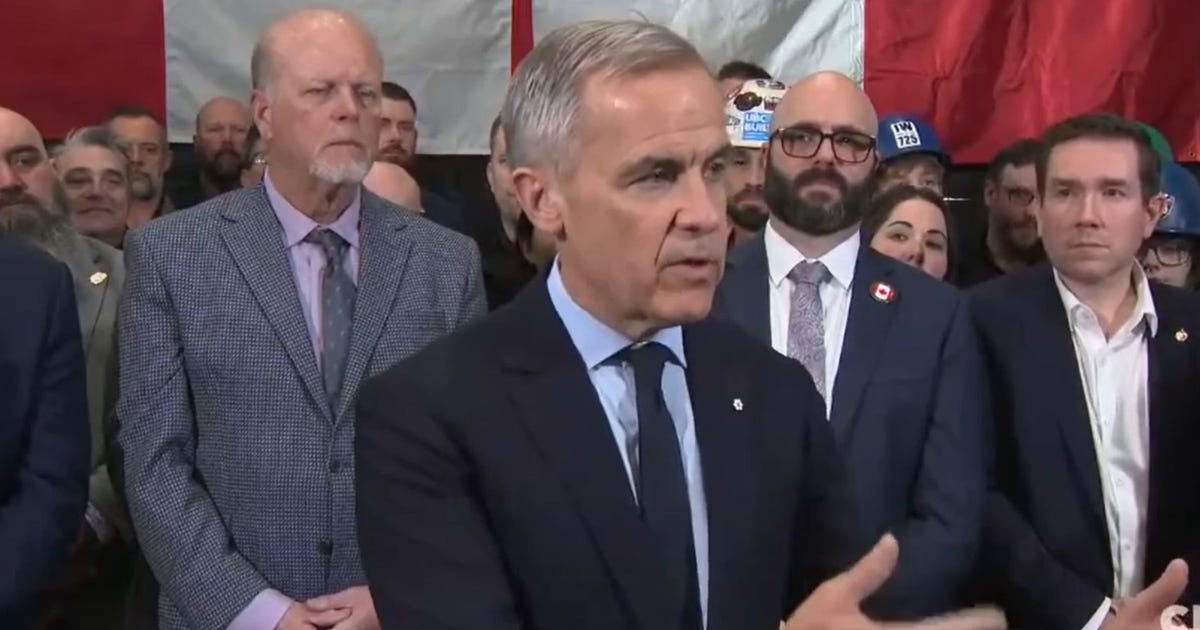Carney dodges firm pipeline pledge, pushes sixfold increase to industrial carbon tax
Carney avoided committing to an essential West Coast Alberta-to-Asia oil pipeline Thursday, saying approval depended on British Columbia’s NDP government and Indigenous groups.
Prime Minister Mark Carney avoided committing to an essential West Coast Alberta-to-Asia oil pipeline Thursday, saying approval depended on British Columbia’s NDP government and Indigenous groups, despite promoting a new federal-Alberta climate deal and pipeline memorandum of agreement.
Speaking briefly with reporters after signing a memorandum of understanding with Alberta Premier Danielle Smith, Carney repeatedly emphasized that the pipeline remains only a “first step” and depends on conditions that have not yet been met.
He said any project would require a private-sector proponent, substantial Indigenous equity ownership, and economic benefits for both Alberta and British Columbia.
“There needs to be full partnership, including equity ownership \[and\] substantial economic benefits with First Nations… as well as agreement and substantial economic benefits for the people of British Columbia,” Carney said, calling the MOU an example of “cooperative federalism.” He offered no direct answer when asked whether Ottawa would approve the pipeline if Premier David Eby remains opposed.
Carney also declined to say whether the federal government would compensate B.C. or impose the project over provincial objections, reiterating only that negotiations will continue.
In a separate exchange, Carney highlighted the MOU’s industrial carbon pricing provisions as among its most significant elements, saying Alberta has agreed to tighten its tiered industrial carbon price to “at least $130” per tonne. He described this as more than a sixfold increase compared to the province’s current effective price. “What does that mean? It means more than a six times increase in the… effective level to the level that’s committed in the agreement,” he said.
The pipeline referenced in the agreement would be privately financed and built, carrying at least one million barrels per day to Asian markets. Its approval is tied to completion of the Pathways Plus carbon capture system, which the federal government says would allow Alberta to export some of the lowest-emissions oil in the world.
The announcement drew immediate criticism from Conservative Leader Pierre Poilievre, who said the framework “does not promise a pipeline will be built” and instead sets up months of process before any project is referred for further federal study. He argued the arrangement gives B.C.’s NDP government an effective veto and said raising the industrial carbon price will increase costs for producers.
Poilievre vowed that a Conservative government would approve a Pacific pipeline without an industrial carbon price or continued delays, arguing that Ottawa has the authority to approve an interprovincial project.
Carney maintained that a final decision is still far off and contingent on partnership with First Nations and the government of British Columbia.




To the surprise of nobody (don't know why Smith is buying Carney's BS) there is going to be no pipeline.
All as planned but others will be blamed because it appears nothing is Carney's fault.
It does look like the fix is in for nothing to happen.
The MoU was, at best, a photo-op.
Appears to be all Carney is any good at.
The problem is ..... Because of too many voters Carney is indeed Canada's fault.
Unless Brookfield invests in this it will never happen. Corney has to make money personally for him to approve of anything. Come on Danielle you can't be falling for this. Get a signed document in real ink not disappearing ink